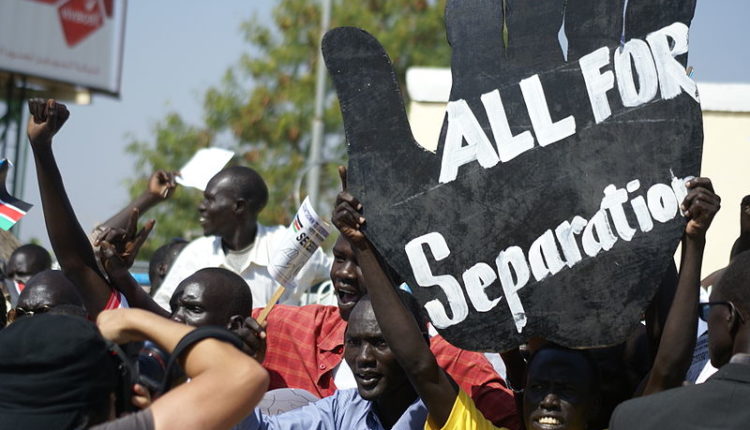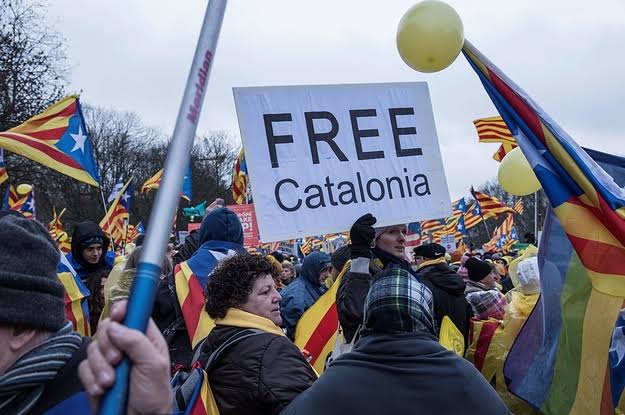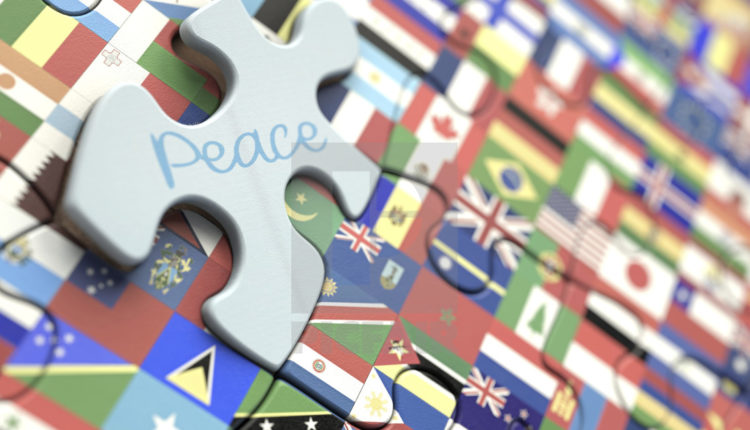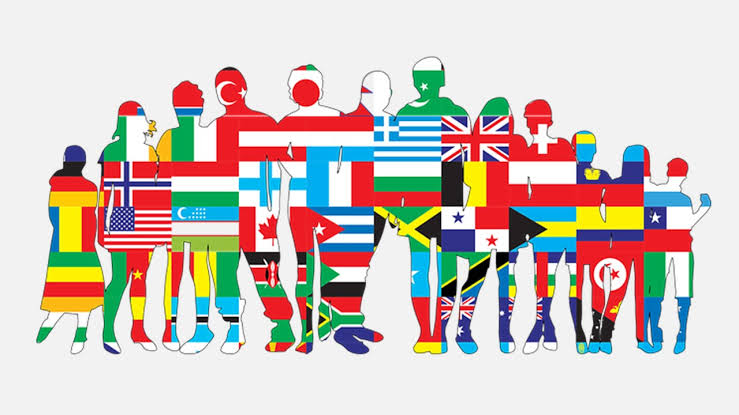A war of words, power and status is what countries like South Sudan, Catalonia, Kurdistan, Kashmir, Hong Kong, Taiwan, Scotland, Kosovo, Greenland quench their freedom for. But what should people invest their emphasis more on is an outcome next to it? Will the chants of freedom take people to a gloomy or a bright sky and is it something the house should care more about?

Establishment of a country
When we raise a point of creating a country, Is there any specific international law-abiding it? How do we turn just land into a country? 1933, Montevideo convention specifies four criteria for the creation of a country. Permanent population, well-defined territory, the existence of a government and the capacity to maintain relations with other countries. But is that all? So, what about the countries who fill all these four blanks? Are they identified as one? No! This is exactly an aim where international politics hit its arrows. The power of “Veto” in the United Nations is an authority to not permit other countries to be a part of the UN. Taiwan, satisfying the scale gets vetoed by China in the UN and therefore Taiwan doesn’t get a green card by the security council of the United Nations because China recognises Taiwan as it’s own part. Palestine, Kosovo, Kashmir share a very same frame. Catalonia is a part of Spain and recognises itself as a completely separate nation but pepper to the dish is what comes next. Countries that share a bond with Spain would never consider Catalonia different from the state and vice versa. This is the arrow and the pepper that plays it’s direction and bitterness under Political and governmental connections, allies and disputes. Hans J. Morgenthau stamps it by saying “International politics, like all politics, is a struggle for power.”

Separatism and it’s origin
How can the advocacy of any state demand a separation of their cultural, ethnic, tribal, religious, racial, governmental daises from a larger group and is it something traditional? Well, an International Affairs and Foreign Policy Chair, Yevgeny Ryabinin mentioned it in his journal of Geography, Politics and Society, 2017, “according to the experts, the world has gone through three ethnical conflicts during the 20th century and it was made out of three waves. First was fall of the empires of Romans, Ottomans, Austria and Hungary empires. The second was post world war-II and the fall of the colonial states when new states were formed and the third is after the collapse of the USSR, the Union of Soviet Socialist Republics and it has been an ongoing process since then.” Because of these waves, people either tend to feel alienated with the groups they were forced to be a part of or perhaps the stereotype perception regarding the minorities and the harm they would cause to the good amount of culture, ethnicity or religion. Another cause is the role played by the government in making some of the other decisions or measures that would offend, hurt and create chaos in one part of the country so much so that they tend to prefer separation better than any other valid notion.

Chanting separatism; the aftermath
Former JNU president, Dr. Kanhaiya Kumar quotes freedom as “an ongoing process and that in life, freedom through sloganeering should be done now and then.” But how justifiable is it in the case of separatism? Mirwaiz Umer Farooq, the Chairman of the Awami Action Committee and a key figure of the All Parties’ Hurriyat Conference (APHC) asked the local residents of the valley to not sell their properties to the Indian people fearing a spin of majorities into minorities after Kashmir was removed from the special status in the Indian constitution from 1954 till 31st October, 2019. The quest should not be for the present but rather for the future. Where will it all end? How do the oppressed revive the ability after the bloodshed, crisis of health, money and hunger amidst a war over a piece of land? In 2017, 90% people voted a Yes to make Kurdistan a separate country from Iraq but it leads to new struggles and massive losses in the end because of international relations and competitive economic conditions with Iraq. South Sudan, Eritrea, are a few more examples to the latter. Kashmir has been under Indian colonists for two centuries almost and still the urge for a separate nation is as raw and fresh as of a new born baby. Although many have lost their families, shelters, occupational and legal rights in this cause. Psychology claims, “Humans will talk about the world and never about their own house.” What about the motherland then? Where do we seek the “justice for justifications?” Is it the case of an ignorant Indian citizen or an urge that should logically be suppressed in order to maintain the peace which by the way, never really existed. Peace comes from within and not considering their willingness to be a part of a land or not, isn’t their own choice? But the world doesn’t work that way, does it? It is the constitution that binds people to their land. It is this compilation of obligations that people are connected with. “Freedom of mind is the real freedom,” says BR Ambedkar, one who made the Indian Constitution. But looks like history is on the other side of the notion. Lands that were left to be on their own have proven, exceptions like Taiwan, Hong Kong, that when the power of the state is separated in two, Civil wars, famine, underdevelopment and fragile economic stability are the only parameters, lands are left to be judged on the basis of then. Majority of the cases have proven worst outcomes when demanded separation from the state.

In 2018, Freedom in the World recorded the 13th consecutive year of decline in global freedom. This has changed the functioning over the continents and countries who were long-standing in the frame of democracies consolidated authoritarian regimes like China and Russia. It is believed that freedom is a human right before any other political, philosophical or societal norm comes along with it. As Martin Luther King, Jr echos “From every mountainside, let freedom ring.” What is important is to never discredit the weightage of one’s voice but also promote an analytical course of action for it. Logic and fact are what this functioning should always be overflowed and overpowered with. Freedom is an emotion before any other barricade fenced around and one should know where to tool it but seeking shelter under separation from the state pops this one big question up and that is what scale should it be measured upon in order to evaluate the after game or the probabilities that could work in favour of the demand of a separate state? Would it be a rainbow or a flood in the end? Because what people talk and read about with a sip of a tea or in their books is not the pursuit but the result that came after it and changed the matter for them.

[zombify_post]










Great work ayesha❤
Great Initiative… Keep going.!!🤗✌️
Very thought provoking article indeed.
People need to start critical thinking about these issue and talk about it often.
Form a liberalist perspective and keeping in view the human rights all ideologies kept aside, the government should favor what people want. Which refers to people living in that place.